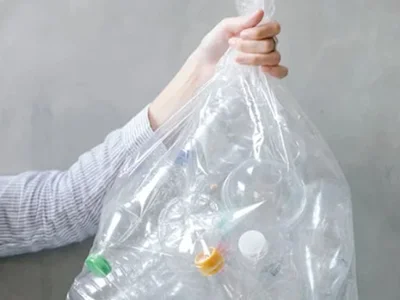The 8-Minute Rule for Reclaim Waste
The 8-Minute Rule for Reclaim Waste
Blog Article
Reclaim Waste for Beginners
Table of Contents9 Easy Facts About Reclaim Waste ShownExamine This Report on Reclaim WasteThe 10-Second Trick For Reclaim WasteThe Best Strategy To Use For Reclaim WasteNot known Facts About Reclaim Waste
Explore the kinds, incidents, and forms of fluid waste. Domestic sewer waste describes the waste and products from a residential septic container. This kind of waste is developed by people in houses, schools, and various other structures. This only includes septic containers that have a drain field. The correct administration and disposal of domestic sewage waste call for liquid waste to be moved to a sewage treatment plant where the correct techniques and tools are put on detoxify and deal with waste.
Commercial waste commonly consists of prospective dangers, such as combustible materials or a blend of fluid and solid waste items, and calls for an advanced and detailed disposal process. The disposal of industrial waste typically involves the filtering of waste prior to transport to ensure risk-free and correct disposal. Industrial waste is developed from results and drainage of commercial processes and production.
This kind of waste can not utilize the exact same sewer monitoring transportation or processes as septic or industrial fluids. The industrial waste administration procedure requires the examination and testing of fluid waste prior to it undertakes the disposal procedure (liquid waste removal melbourne). Overflow waste is the liquid waste that comes from runoff and excess stormwater in highly populated locations or cities
Drainage waste can create contamination and flooding otherwise taken care of properly. Learn more concerning sewage system cleansing and waste monitoring. Ensuring proper waste management can prevent disasters and reduce environmental injury. Both people in residential settings and specialists in commercial or manufacturing sectors can gain from understanding the procedures and laws of liquid waste administration.
Getting My Reclaim Waste To Work
Contact PROS Services today to learn more about our waste management and disposal services and the correct ways to care for the fluid waste you create.
(https://yoomark.com/content/httpsreclaimwastecomauservices)Do you know what happens to your water when you draw the plug, flush the commode or drain the washing equipment? No? Well, it deserves knowing. This supposed 'wastewater' is not only a crucial resource yet, after treatment, will certainly be released to our land, rivers or the ocean. Used water from commodes, showers, baths, kitchen sinks, washings and commercial procedures is understood as wastewater.

water used to cool down machinery or clean plant and tools). Stormwater, a form of wastewater, is drainage that streams from farming and urban areas such as roofing systems, parks, yards, roads, paths and seamless gutters into stormwater next drains pipes, after rain. Stormwater moves unattended straight to local creeks or rivers, at some point getting to the ocean.
Some Ideas on Reclaim Waste You Should Know
In Queensland, the majority of wastewater is treated at sewage treatment plants. Wastewater is carried from residential or commercial websites via a system of sewage systems and pump terminals, referred to as sewerage reticulation, to a sewer therapy plant. Local federal governments build, keep and operate most sewage treatment plants. Operators are licensed under the Environmental Protection Act 1994 to discharge cured wastewater at an appropriate ecological criterion right into rivers.
The Department of Natural Resources recommends neighborhood federal governments concerning managing, operating and maintaining sewerage systems and therapy plants. In unsewered locations, neighborhood governments might call for homeowners to mount individual or family sewage treatment systems to treat residential wastewater from toilets, kitchen areas, washrooms and washings. The Department of Natural Resources authorizes the use of household systems when they are verified to be reliable.
In some new subdivisions, therapy of some stormwater to get rid of litter, sand and crushed rock has actually started utilizing gross pollutant catches. Wastewater treatment happens in four phases: Removes strong issue.
Wastewater then moves into big storage tanks where solids settle and are gotten rid of as sludge. Grease and residue are skimmed from the surface. Makes use of small living microorganisms referred to as micro-organisms to damage down and remove continuing to be liquified wastes and great particles. Micro-organisms and wastes are included in the sludge. Eliminates nitrogen and phosphorus nutrients that can cause algal flowers in our waterways and intimidate aquatic life.
The Ultimate Guide To Reclaim Waste
Nutrient elimination is not available at all sewer therapy plants due to the fact that it requires pricey specialized tools. It is becoming more common in Queensland. Clear fluid effluent produced after therapy might still have disease-causing micro-organisms. If this effluent is launched right into rivers such as rivers or the sea, the micro-organisms will at some point pass away out.

A lot of wastewater streams into the sewerage system. Under the Act, neighborhood federal governments carry out authorizations and licences for ecologically relevant tasks (ERAs) entailing wastewater releases that could have a regional impact.
Unknown Facts About Reclaim Waste
Or else, examples are taken for lab evaluation. Commonly many tests are required to develop the levels of each of the various contaminants such as oils, heavy steels and chemicals in water. Surveillance gives accurate info concerning water quality and can verify that licence problems are being fulfilled. The details gotten through monitoring supplies the basis for making water high quality choices.
Report this page